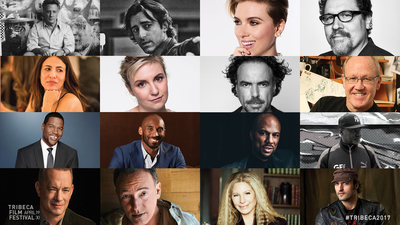
BY MATTHEW ENG |
A Quiet Fascination: Terence Davies Meets Emily Dickinson
"Cinema’s always in the eternal present," says Terence Davies, one of the art form's foremost explorers of the past. His new Emily Dickinson biopic looks back while palpably pushing its helmer forward.
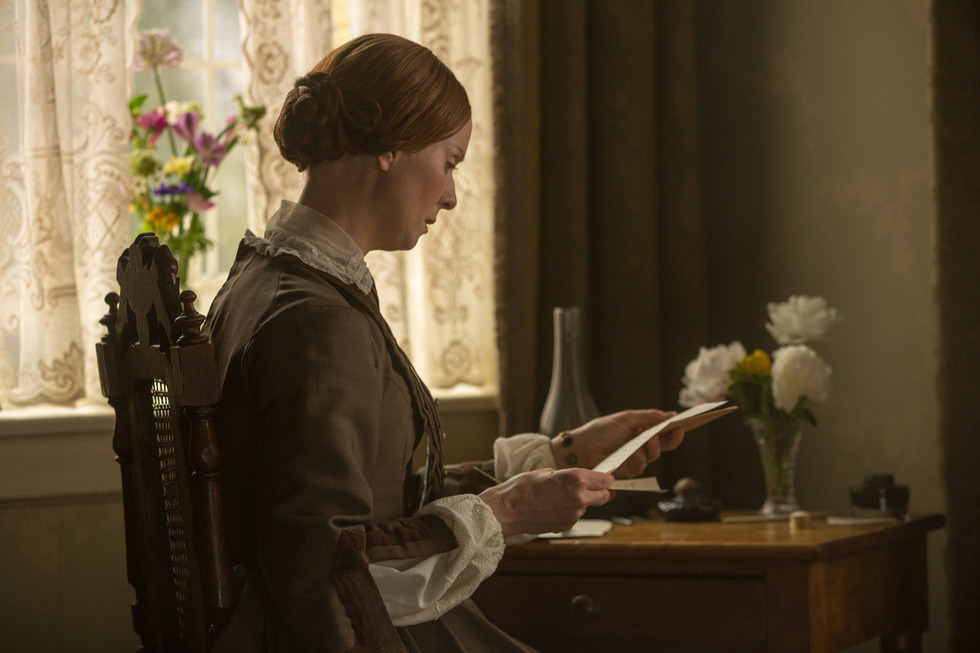
Although he has never quite reached the adulatory auteurist status of his more mainstream contemporaries, for generations of film lovers, Terence Davies is cinema. Not just a beacon or titan of cinema, but cinema at its purest and most devout.
Davies famously came of age as a student of the movies, frequently patronizing the picture houses of his working-class Liverpool neighborhood during the 1950s and 1960s, an obsession exquisitely reproduced in The Long Day Closes, his remarkable 1992 memory piece. He speaks with equal and infectious ardor about the mournful dramas of Ingmar Bergman as he does about the candy-colored MGM musicals that he devoured in his youth. This playful but whole-hearted cinephilia has inflected all of Davies’ films, albeit in subtle ways that frequently avoid mere homage or empty pastiche. His finest films are mosaics of subjective chronology and lived-in experience that never forfeit technical precision for heart-stopping poignancy. This applies as much to the masterful, deeply personal dramas of his earlier years, like Distant Voices, Still Lives and The Long Day Closes, as it does to his more recent string of finely-observed, female-led literary adaptations. These dramas have given us such indelible characterizations as Gillian Anderson's ostracized socialite in The House of Mirth, Rachel Weisz's desolate scarlet woman in The Deep Blue Sea, and Agyness Deyn's headstrong farmer's daughter in Sunset Song.
Joining this vivid and increasingly prolific portfolio is a bona fide literary icon: American poet Emily Dickinson, whose difficult life is the subject of Davies' mesmerizing new drama, A Quiet Passion. This is no hagiographic biopic, but an impressionistic encapsulation of an unconventional existence, as led by a woman who was unquestionably ahead of her time — and not solely in the artistic sense. As breathed into being by the extraordinary Cynthia Nixon, who endows Dickinson with a formidable presence and an expansive interiority in a career-best performance, Davies' complex but lucid portrait reckons, quite laudably, with Dickinson's moral rigidity, recessive tendencies, and all-consuming uncertainty regarding her emotional and spiritual fate. And yet Davies, never one for decisive judgment, insists that we see the tragedy and glory of a curious and solitary way of life waged with radical and unstinting resiliency. A Quiet Passion is a film tenaciously tough-minded in its overarching worldview. But like the majority of Davies' work and Dickinson's as well, it is uniquely capable of breaking our hearts at the moments we least expect it.
I sat down with Davies to discuss Dickinson’s legacy, Nixon’s ingenuity, and the medium that he continues to push and unconditionally adore.
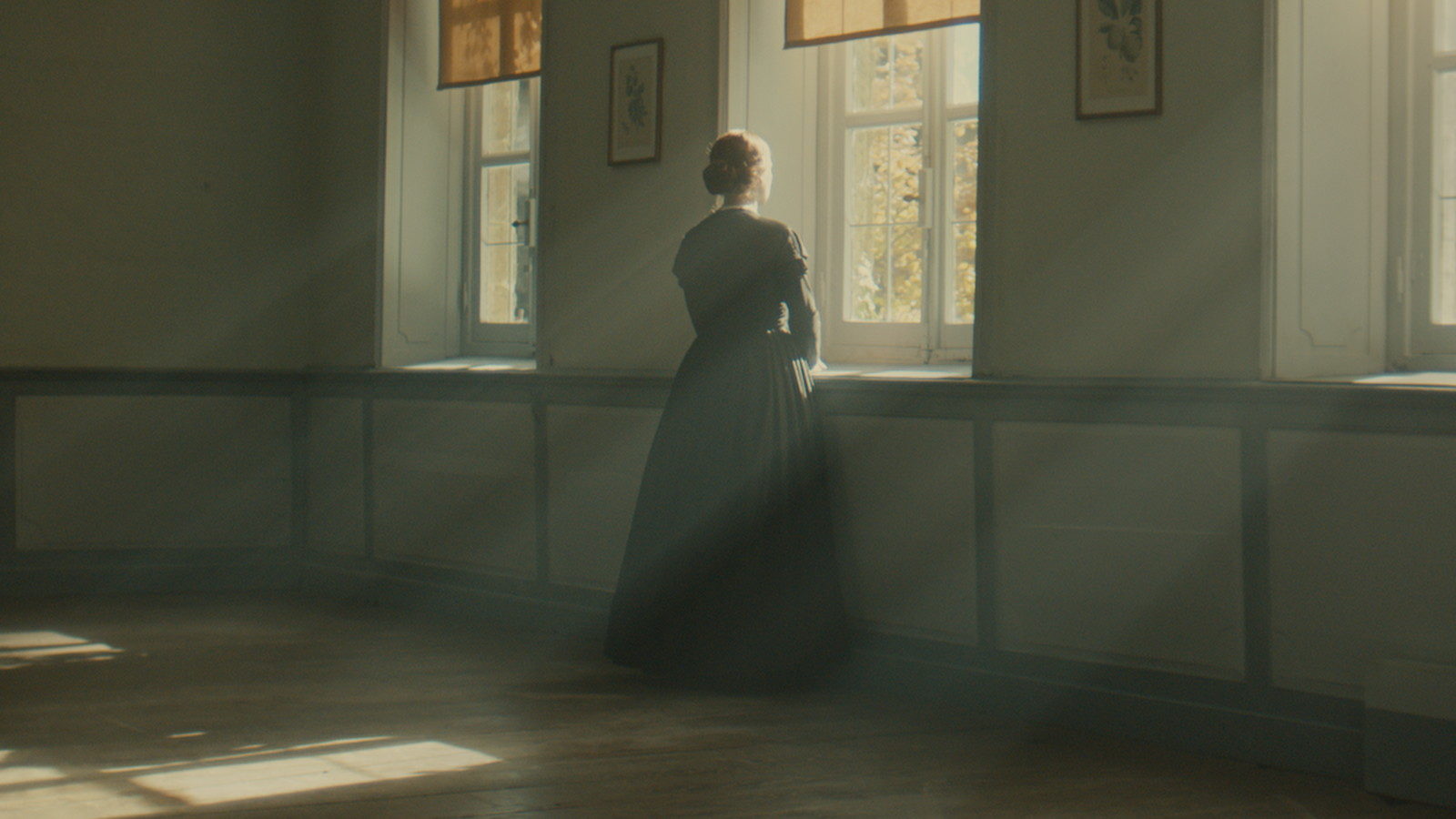
We have seen plenty of biographical films about writers, including several poets, but I have rarely felt such a potent and intrinsic kinship between filmmaker and literary subject as the one exhibited between you and Emily Dickinson in this film. When did you discover Dickinson’s work and what spurred your personal connection to her?
I discovered her when I was 18. There was a program on television about her. And it was Claire Bloom reading one of the poems, “Because I could not stop for Death.” And I ran out and bought a little anthology [of Dickinson’s work]. I was still working as a very lowly bookkeeper in an accountancy firm. That was something I just read because I wanted to read them. And it was 12 years ago that I began reading her properly and then found about this extraordinary life. The reason I think was drawn to her was because she was religious but not in a conventional sort of way. I mean, she did refuse to go to church. Reading the poems, you realized that she does believe that we have the thing called a soul, but what if there is no god? What do you do then? If there is a god, what do you do then? And she never, in all her poems, comes down on either side, whether she thinks there’s no one there or there is. She always takes a middle line. And she always implies hope that he may be there and this may have all been worthwhile. So I felt that very much.
And her family was very close and I’m from a family of ten, seven surviving. Our family was very, very close too, so I know what that felt like. And when there were frictions within the family, I knew exactly what that felt like. So I felt, at that level, that I could bring something to it because I can feel that she didn’t want the family to change forever. And I was the same. I wanted my family to stay exactly like [they were], forever and ever. It seemed so wonderful.
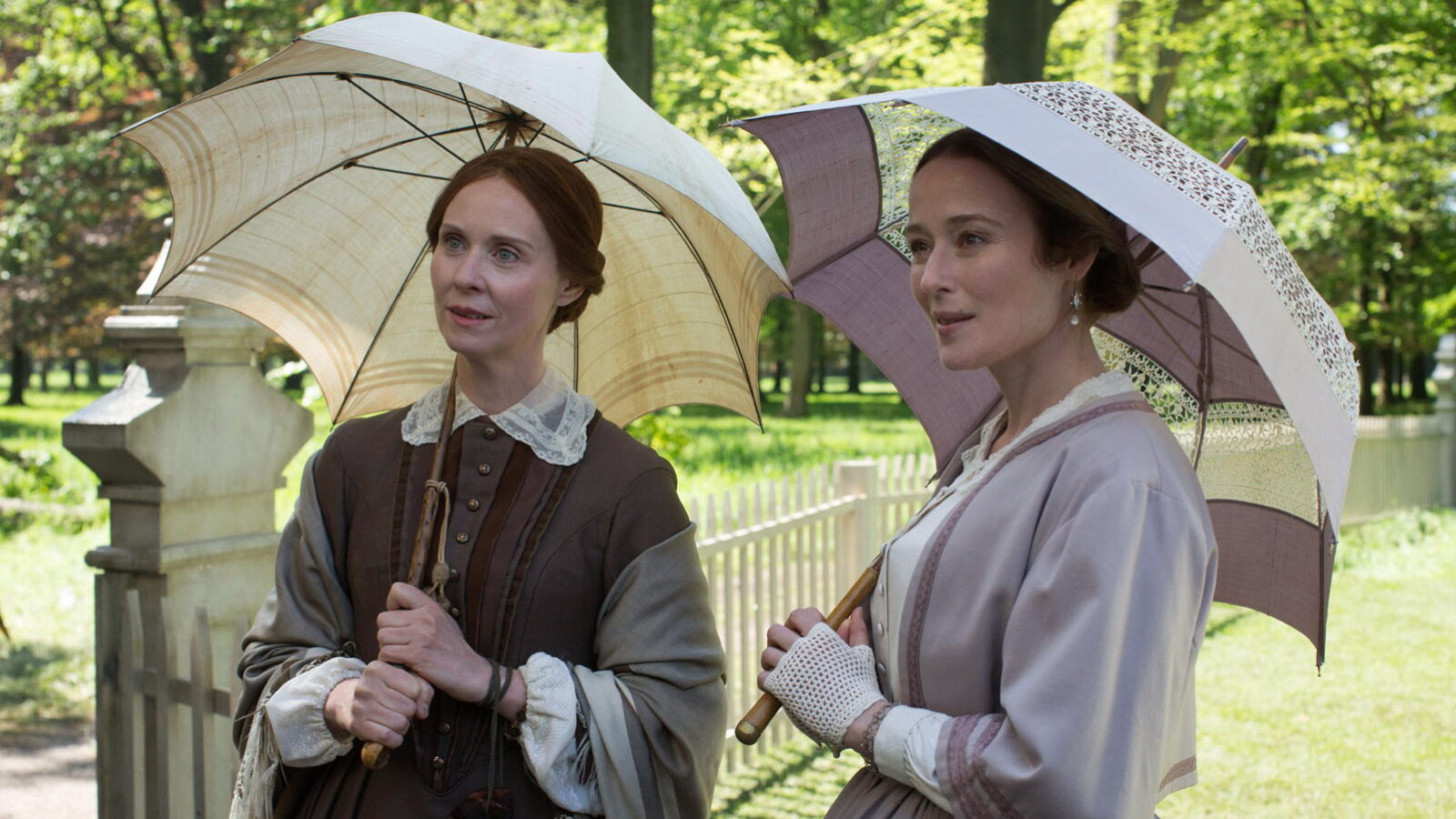
And I think the other thing is that she was an observer. And I think I am an observer. I’m not a participant in life. And so even when you’re at your happiest, there’s a part of you that know it’s already decaying. There’s nothing more depressing than getting on a bus and looking around and wondering, One day we’ll all be dead.
[And] I didn’t think [Dickinson’s] was a dull life. [Life] doesn’t have to be exciting because you go everywhere. She only went away to Mount Holyoke [Female Seminary], which is about ten or fifteen minutes by car [from Dickinson’s home in Amherst]. But if you got to go there by [carriage], it seems an enormously long way away. And she was very, very homesick. She was ill with homesickness. And when I was a child, I had to be sent away to North Wales [from Liverpool] because I had a chest infection. And, to a child, that’s [far]. And I used to ache and [beg] to go home. I really know what that feels like.
And when did it become clear to you that this could be the basis for a movie?
I started writing it about five years ago. And I met Cynthia for another film which didn’t come off. But I never forgot her. And then when I finished the first draft, I said to the producers [that] I’d like to approach Cynthia with this. And I did and she was very kind to say yes, she’d do it. And she stuck with it for four-and-a-half years, which is lovely. She also said, in one of the interviews I heard her do [while] we were on the road together, “I told them they won’t get any money if I’m starring in the film.” That was so touching. And I said we will. So it’s been a fairly long process. But you know, I’m not a big name. So I’m limited in the amounts of money I can get. Also I cast the people who are right, not because they’re names. I don’t care if they’re well-known or not but that immediately pushes the budget down. And that’s just one of the drawbacks of not being in the mainstream.
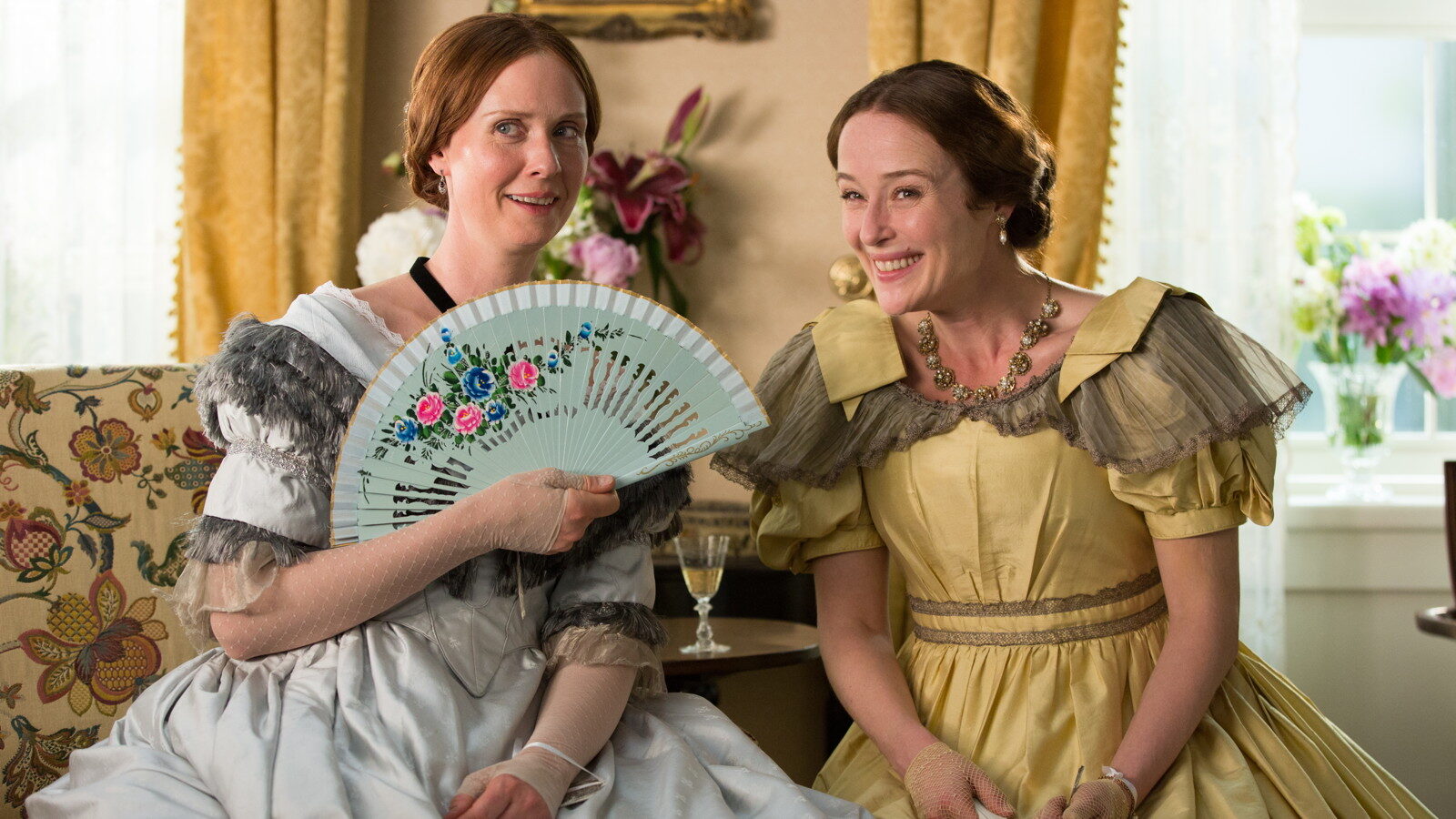
Tackling the life story of any famous figure always seems like such an overwhelming task. How did you know which periods and events of Dickinson’s life you wanted to bring into focus?
I only ever do three drafts. And the first draft really sets out the architecture of the piece and to give an indication of whether it might be expensive in certain areas. But it’s a purely practical thing. Once you’ve got the structure down, you then start working on what the real drama is and determine what you use. But that dictates itself. And because [Emily] didn’t go anywhere doesn’t mean to say there isn’t drama. Her inner life [was] rich because she was incredibly well-educated, as a lot of those women were. What [her life] doesn’t do is make huge gestures. It’s about small gestures of how you treat someone. Or if [characters] are going to have a row about something, it’s done with, initially, real politeness and manners. And then halfway through the argument, you get rid of manners because you’re going to say what you want to say. But if it’s a small and enclosed area, everything becomes heightened. It just does. And that’s drama. It is. Drama is things done. If you look at Greek drama, that’s precisely what it [does]. It’s about families. They may go off and fight wars in Troy but it’s actually about families and how you behave within [them].
[Emily] didn’t have to go anywhere. A little thing like her bread only winning second prize [at a bake sale] really hurts her. And that literally happened. And you think, Well, why couldn’t she have just won first prize? Why couldn’t she have just once been at the front of the queue? But events like that would hurt her for days. Those things are huge when the area is so small and they provide you with the bits you want to use.
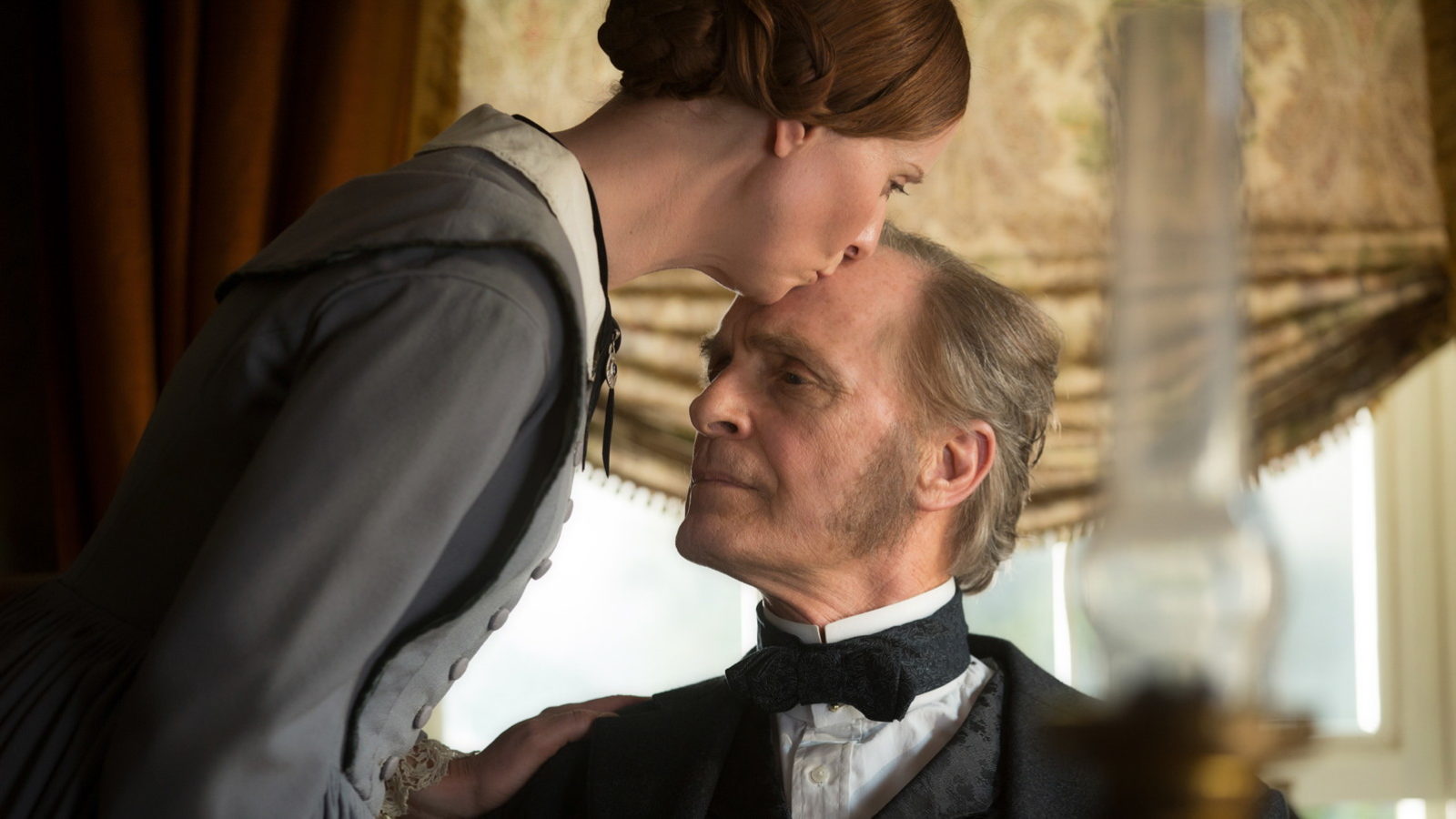
Your collaboration with whoever was to play Emily Dickinson was inevitably going to be crucial to the film’s success. But Cynthia Nixon is so revelatory here. I can imagine many an actress clamoring for this part, but her hold on it feels instantly indelible. What did she help you discover about Emily?
As soon as you have actors on the stage, in front of the camera, it begins to change because they’re not you. The only time you hear and see the film when it’s absolutely perfect is when it’s in your head. And then you whistle goodbye to it because it’s not going to be like that because it’s going to be much different than that and it’s going to be better. You’ve got other people bringing in their ideas of what that character is. These are important things. And I’ve always said [to my actors], “You can try anything you like. If it doesn’t work, we’ll do something else.” The only thing I demand is that they not act or show reluctance. You have to open your heart to the actors and they’ve got to open their hearts to you.
I do very little rehearsal. But what was very touching very often was that [Cynthia] would ask [before a scene], “Can I say that? Can I put that little line here?” And I’d say, “Of course you can!” That’s so very beguiling because you can see she wanted to get it at its absolute best. And then what she does with some of the lines still gives me such pleasure. I don’t have to watch it. I can see it in my mind. When she’s talking to the reverend about her not getting anything done and being too stoic, the line is… [Stoically:] “Ah, but to be wracked by success.” And she goes… [Smiles, coos:] “Ah, but to be wracked by success.” Ah! I would never, never have thought that anyone would say it like that. And it’s just like being in her head. It’s so powerful. And the same with [her recitation of] “Because I could not stop for Death.” I heard it as very solemn. But she says it with this kind of wry detachment, as if [death is] happening to somebody else and not happening to [her]. All the poems were done on an afternoon [away] from the soundstage. At the end, [Cynthia] asked, “When do you want me to re-record them?” And I said, “I don’t want you to re-record what them. What you’ve done is so marvelous, I don’t want to spoil it.”
Actors have to bring what they see and hear to the part. That’s what’s thrilling. And you get things which are not in the script. For instance, when [Emily’s brother’s] baby is born, the scene included all of the principals. And we were in the cutting room, which is another area where you discover what the film is about, [editor] Pia Di Ciaula said, “I want to cut to Jennifer Ehle [as Dickinson’s sister].” And I said, “Let’s see what it looks like.” And this radiant look emerged. That’s not in the script. But as soon as we saw it, we knew we had to put it. We had to put it in. It takes another regurgitation through the editing and then through the dubbing. For the tea party [scene], I asked if we could make all the chinks and the [sound of] water going into the cups seem very loud. When you’re embarrassed, as Emily is in that scene, you hear things much louder than they are. And the silences become even more awful.
So it really goes through many paces. A friend of mine once said, “A film goes through three deaths: death of the idea when you write the script, death of the script when you shoot it, death of that when you cut it.” And he’s right. It should go through those things. Once you put the first assembly together, you never look at the script again. You’ve got to find out where the film sings and where it is true.
Emily’s deathbed and sickness scenes are so frighteningly real that they reminded me of Harriet Andersson’s extraordinary performance in Cries and Whispers…
That is a compliment.
I can see a lot of Bergman in this film, particularly Cries and Whispers, which is evoked not only in those scenes but also the way in which the camera continually lingers so closely on Nixon and, most of all, in the film’s ongoing reckoning with questions of death, family, and isolation. Were you influenced by Cries and Whispers or anything else in the Bergman canon during the making of this film?
I once gave a master class on Cries and Whispers so I think it is one of the greatest films ever made. It must have inevitably seeped into my subconscious, I’m sure. But other things also do. It’s not just great films that you call back on. The American musicals are another and they’re one of my great joys. And you look at the sort of film noir-ish American films. They’ve always got great dialogue. I just thought it would be nice to make [A Quiet Passion] witty as well. So it’s an amalgam of things. But at the end of Cries and Whispers there is an implied hope. I don’t think I could have pulled that off. [Laughs]
Music has always played a vital, world-deepening role in your movies, from the group sing-alongs of Distant Voices, Still Lives and The Deep Blue Sea to the unforgettable use of Debbie Reynolds’ rendition of “Tammy” in The Long Day Closes. The importance of music in your films is no less true in A Quiet Passion, particularly in that mid-film sequence in which Emily awaits a visiting, shadowy suitor that she has dreamed up, all set to Charles Ives’ haunting “The Unanswered Question.” But I was also struck by the way in which Nixon’s readings of Dickinson’s own poetry operate like something of a recurring soundtrack. There’s such a delicate musicality to her recitations. How did you conceive these specific sonic elements?
It was important to make sure that the basic music was the poetry. That acts as the music. But there were also other places, like the Jenny Lind concert that [Dickinson] went to. We got hold of the program and Jenny Lind sang things like “There’s No Place Like Home” for god’s sake. And I think she did “La Somnambula,” which is why I used the bit of “Bel Canto.” But I think “Bel Canto” is really boring. They run up and down the scale and it’s like, Oh, shut up! They go on forever. But she didn’t sing any Schubert and I waned Schubert in there. So that was a conscious choice.
I also wanted to say that there’s nothing sadder than listening to music that people are enjoying in another part of the house. [My family] got together for a party every Saturday and there would be a lot of people, but I would be in bed. And it would be so awful to hear them all having a good time downstairs and not be a part of it.
And “The Unanswered Question” I wanted to use because it’s very, very strange. And I’ve got a soft spot for Ives because he married someone called Harmony Twitchell. [Laughs]
There is something deeply startling about the suddenness with which major life events like birth, marriage, and death occur throughout A Quiet Passion. But this depiction of time feels so in keeping with your films, which often interrogate the past but are also daring when it comes to narrative structure. Are these meditations on time knowingly in the front of your mind during writing or are they more subconscious byproducts of the stories themselves?
I’m very obsessed with time. Even if I’m not consciously thinking of it, I am subconsciously thinking of it. Cinema’s always in the eternal present. When you cut, the implication is always that the thing that follows is the next thing that happened. But I’m interested in when the next thing that happens is the next emotional thing that happens. That seems to me to be much more interesting. Also, when you dissolve, we all read that as time passing. And then [when] you have a sequence in which you cut and then dissolve back to the original starting point, what does that tell us about time? Is it parallel time? What is it? Which one is the real time? And I love that.
When they age [in the film], we had a small budget and so there couldn’t be prosthetic makeup and all that. And besides, it just looks silly. I thought, Well, how can I do it — cheaply? And I was sitting, looking at photographs, and I thought it would be really interesting if we just track in on them as they age. Just do nothing else but track. We spent a whole afternoon tracking in on the older versions of the characters. The only thing we told them was to please not blink. And Cynthia said, “I’m awfully sorry, but I’m a blinker.” [Laughs] And I said, “Can you try not to?” And at the very, very end of these long tracks, she just gives half a blink. And this digital man said we could take it out. How do you take out a blink? And they did! It’s quite wonderful what they can do with digital now. But things like that, they have to come to you. Because we only had four million dollars. That’s all there was. So it can’t be elaborate. And when it becomes elaborate, I feel that sort of undermines the narrative. It should be something you almost don’t see.
A Quiet Passion opens in New York on Friday, April 14th at New York's newly-reopened Quad Cinema.
